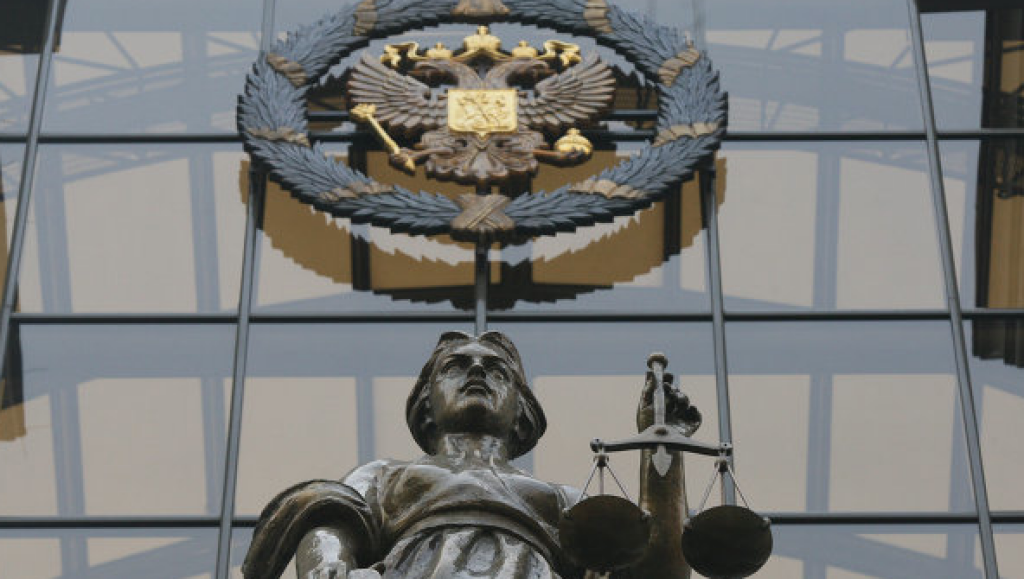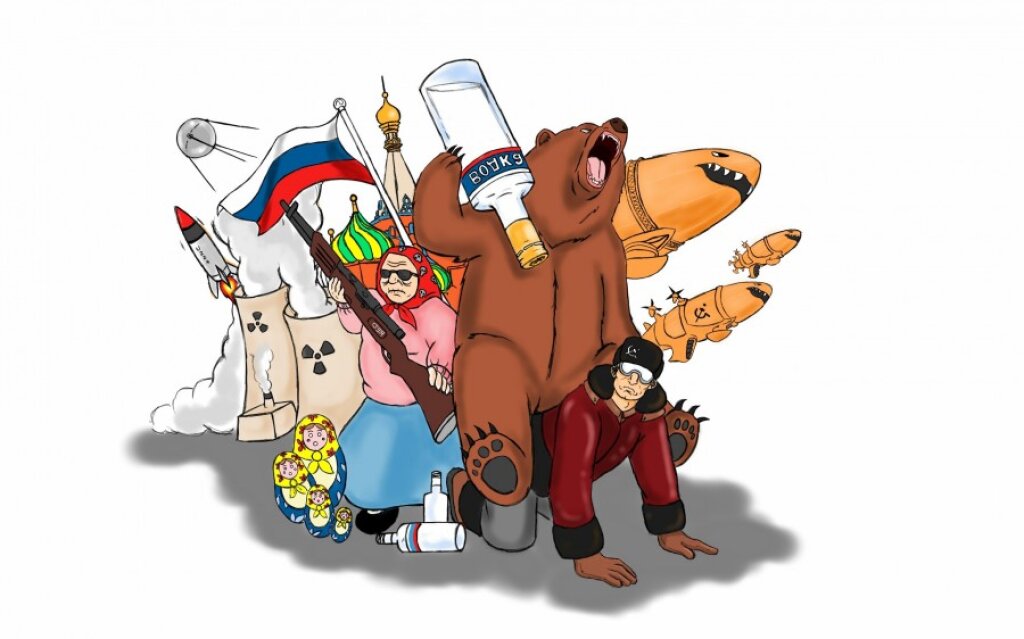Thomas Callahan (M.A. in Russian & Slavic Studies from NYU, 2010, is a Leitner Summer Human Rights Fellow at Fordham Law.
What I did at Customs on arrival in Moscow this June is generally what every non-elite Russian does in his day-to-day life: kept my head down, checked all the right boxes, and hoped everything didn’t go totally haywire. The necessity to remain low-key on a basic, existential level has grown this summer, given recent legislation and targeted prosecutions of people and organizations engaged in so-called political activity, whatever that means.
Join me in the coming paragraphs (and in a forthcoming post) for a summary of some recent legal developments of concern in Russia. I’m spending the summer interning at the Moscow office of the American Bar Association’s Rule of Law Initiative (ABA ROLI), reporting on new laws and political trials as objectively as possible, more often than not an extremely frustrating task.
At Sheremetevo, my primary concern was that Customs (handled by the FSB, roughly Russia’s version of the CIA, and one of a few successor organizations to the KGB) would give me a hard time and put me on the next plane back to New York.
It’s not as rare an occurrence as you might think: the fact that Russia’s law enforcement authorities act in a manner that can be described only as arbitrary and capricious, combined with a post-Maidan uptick in jingoism, put the idea in my head that there was a very real possibility that someone would want to mess with an American with clear, established ties to Russia (shown by the dozen Russian visas for work, tourism, and study going back eight years in my passport).
I was let in. What I guess is the main reason, is actually a great metaphor: I have a difficult-to-get, long-term, multiple-entry private visa (meaning that I don’t have to be attached to any educational institution, job, hotel or Russian citizen) that I was able to get simply by virtue of having once lived in the same Moscow apartment building as the Russian diplomat in New York handling my file. It signifies a connection with the elite here. More likely: my fear was totally overblown and silly ... but the way things are going here, who knows.
What we see today, under the Putin presidency, is a full-throttle return to overkill as a style of governance, minus all the benefits of life in the Soviet Union: basically zero crime as we think of it, zero homelessness, and free (and good) education and medicine before Gorbachev began dismantling the state and, eventually, Clinton neoliberals “taught” capitalism to this country’s bureaucratic elite. Today, Russia has essentially adopted a more openly aggressive version of the United States’ system of rule, where elite-dominated institutions make all the important decisions for everyone else to the benefit of capital, the great majority of legislators essentially disdain the democratic process and the popular voice, and the level of poverty is deeply embarrassing given the fact that so few are able to accumulate (read malversate) so much.
It's no secret to those who study Russia that the culture of vertical control here affects everyone – not least human rights workers and lawyers fighting good fights.
From a practical standpoint, probably the most important recent legal development for human rights workers here is a June update to Russia's “foreign agents” law, which forces NGOs engaged in “political activity” (which is defined exactly nowhere) to register with the Ministry of Justice if they receive funding from outside Russia – as basically every human rights NGO here does. The amendment expands the grounds on which an NGO receiving such funding – or, now, alleged to be receiving it – may be randomly inspected by federal agents. For example, one kind of meta-reason could be that the organization has not applied for inclusion in the federal register of “foreign agent” organizations. However, the amendment also gives the Ministry of Justice the right to include to the register, of its own accord, organizations it believes have satisfied the requirements of the “foreign agents” law, throwing due process to the wind.
In February, the State Duma (the lower house of Russia's legislature) had amended the “foreign agents” law to enhance law enforcement’s powers to conduct snap inspections of NGOs. The most important grounds for unannounced inspections are “complaints” by government agencies, local authorities, the media, whoever.
Russia’s Constitutional Court recognized the constitutionality of the “foreign agents” law, also in February, but called on the Ministry of Justice to lower the minimum fine for violations. At the end of June, the Ministry announced that it would propose a related amendment. Currently, the maximum fine for an organization is 500,000 rubles (about $14,000) – a preposterous amount of money here.
The Constitutional Court noted that as the law stands, authorities are unable to adjust fine amounts according to circumstances particular to the organization being fined. Officials should be able to take into account the “nature and consequences of the offense, the degree of guilt,” and other factors like financial status, the ruling read.
If passed to law, the Ministry of Justice proposal would see a somewhat significant reduction in the minimum fine amounts, which in any case would stay extremely high. The Ministry's statement does not explain, of course, how different or in this case lower minimum fine amounts would allow prosecutors and others to better consider the circumstances of a defendant organization’s alleged violation of the law. We should also be at least slightly skeptical that such a proposal will be introduced for consideration: legislators here often publicly announce plans to propose a new law for discussion, making a huge deal about it in the media, and then don’t even have an abstract to offer when you call their office. However, it’s a different affair for a federal agency to announce plans to introduce an amendment based on a Constitutional Court ruling, and it could actually end up going through. Why?
The whole Constitutional Court-Ministry of Justice affair is illustrative of how “these things” “work” in Russia, and would have a good chance of being signed into law for two reasons. First, the new fine amounts remain substantial (read devastating) relative to the average NGO's budget here. Secondly, the primary objective of the “foreign agents” law is not to directly restrict civil organizations, but to place a public stigma on them (the law has only been used to shutter one organization, an LGBT advocacy group in St. Petersburg – the restriction of perceived political activity is definitely a goal). It is because of this second reason that the fine amount can actually be seen as irrelevant as long as it is large.
President Putin has a special incentive to sign such a proposal into law, as doing so would provide him the chance to pay public lip service to justice and the rule of law by deferring to the Constitutional Court, while simultaneously making no fundamental changes to the way the Kremlin treats human rights groups. All the same, it’s anyone’s guess when the proposal will formally become a bill, when Russia’s rubber-stamp legislature will pass it, when President Putin will sign it, and when it will be effective.
Meanwhile, the Russian legislature has passed some other pretty kooky laws following the revolution in Ukraine and the annexation of Crimea. It’s crucial to note that as the defeat of Nazi fascism is the single most important event in modern Russia’s historical narrative, the fixation on the neo-fascist elements that undeniably played a major role in the Maidan comes from a semi-genuine, if reactionary, place. (Keep in mind, though, that federal authorities here often collaborate with expressly neo-fascist groups on, for example, rounding up migrant workers, when it's convenient to do so.) However, their presence in the Ukrainian revolution is being exploited by the Kremlin media apparatus to stoke xenophobia here as part of a larger pivot away from the relative friendliness to the West – or, at least, to Western capital – that characterized the first decade or so of Putinism.
Some new, dubiously enforceable legislation we’ve seen this summer puts this phenomenon on paper.
As of June, for example, Russian citizens who permanently reside in Russia but hold citizenship with any other country must register as such with the Federal Migration Service. Failure to do so can result in criminal liability to the tune of 400 hours of compulsory labor, or an absolutely crazy 200,000-ruble fine – equal to about 60% of the average annual income here. More directly, a criminalization of the “rehabilitation” of Nazism is now on the books. Violations could include, for example, public denial of “facts established” in verdicts against Axis war criminals or the dissemination of “false information” (make like a Russian prosecutor and take “false” to mean whatever you want it to) about Soviet actions in World War II. Violations can result in liability up to 300,000 rubles that basically no Russian would ever, ever be able to come up with, up to two years of foregone wages, three years’ forced labor, or a prison term of the same length.
This law also makes it an administrative offense to publicly express “clear disrespect” on national commemorative days related to the “protection of the Fatherland,” or to desecrate public symbols of Russia's “military glory” in real life, or online.
Speaking of information online, bloggers with an audience exceeding 3,000 people per day (some understand this to include Twitter and Facebook users) will now have to post their real name and email address on the front page of their blog. The related law also bars such bloggers from publishing information that could be regarded as the propagation of “extremism.”
The criminalization of so-called “extremism” constitutes a pretty serious lacuna in the Russian legislation, as the word is actually not defined anywhere, and is used in practice to target minority religious and political groups – for example, Jehovah’s Witnesses pamphlets are outlawed as “extremist literature” here. And even though accomplice liability exists elsewhere in the Russian Criminal Code, as of this summer it is a criminal offense to finance “extremist” activity. Probably this law will be used only after a conviction on extremism in order to go after backers of the political group, minority religion, etc. usually targeted by use of these laws.
The preposterousness of the political-legal climate here becomes only more evident when you step into the courtroom. In part two of this post, I’ll discuss my experience with a high profile political trial that closed at the first instance level last week in Moscow. Stick around.



